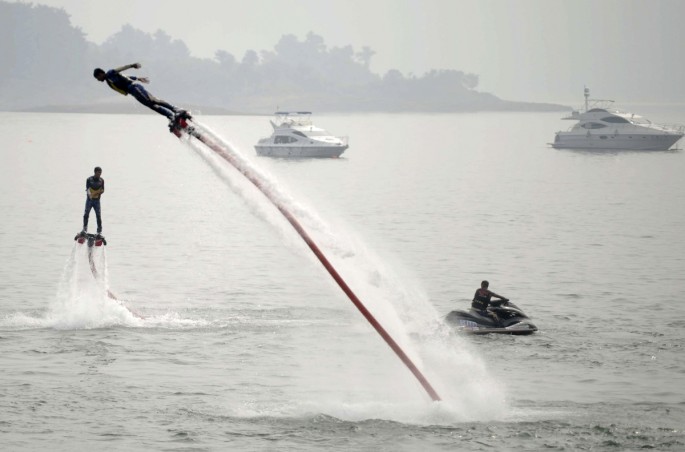Up to 70 percent of the 4,000 registered yachts in China are currently stagnant with many yacht clubs losing money, China’s senior industry members said in an interview with the media on Sunday.
Kuang Xiangrong, a member of the Royal Hong Kong Yacht Club with 35 years of yachting experience, said that the yacht industry in mainland China is currently in an unhealthy state.
Many companies are flocking to high-end business yachts, some clubs have ambiguous orientations, and avenues for profit making are especially narrow, Kuang said, adding that the lack of government policy support and infrastructure means that yachting in country remains in a primitive state.
Approximately 4,000 yachts are registered in the mainland, with most anchored in Shenzhen and south China's Hainan Province, according to the China Association of the National Shipbuilding Industry.
In a report published by China Business News earlier this week, around 70 percent of these yachts have not been used for a long time and a majority of the clubs are operating in the red.
China's clubs run in either one of two models, namely from investments by real estate developers to boost real property values and self-owned clubs as business ventures, the report said, quoting an unnamed manager of a Shanghai-based yacht club.
However, neither model works since real estate developers do not rely heavily on yachts for investment returns nor independently run clubs as they are struggling financially due to unfavorable government policies.
Some clubs are also required by the government to meet standards in size and scale of operations, which increases the investment, said the manager.
A well-developed yacht club in mainland China has 300 members on average, and that is not enough to cover the club's operating costs, Kuang said.
Yang Xinfa, yacht section director of the China Association of the National Shipbuilding Industry, said that the nation's yacht industry focuses too much on the high-end market and is inaccessible for average citizens.
Despite these setbacks, Kuang remains hopeful for the industry due to China's long coastline and the rising GDP per capita of the Yangtze River Delta, the Pearl River Delta, and around the Bohai-Sea Economic Zone.



























